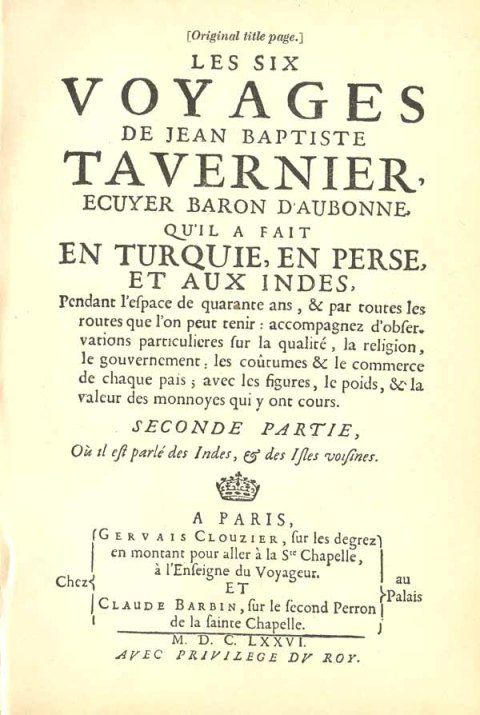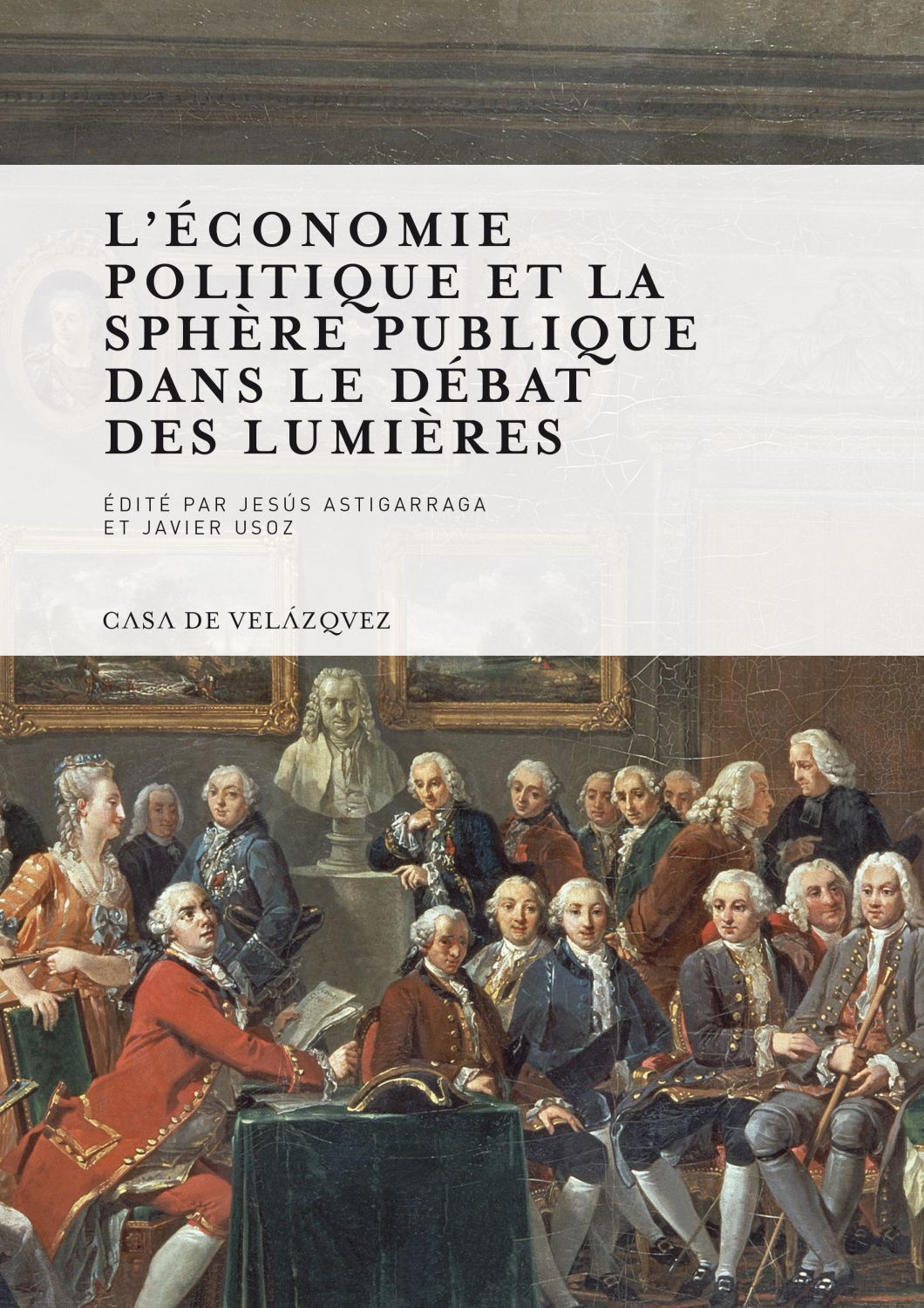
AM |
@HDI1780
"... without tumult and faction ..." — David Hume
Search engines allow us to better understand what Condorcet called "révolutions du langage" in the Eighteenth century [
see]. As it turns out, hundreds of turns of phrase, expressions and words circulated widely among writers. To the extent that we can trace their origins, they provide interesting clues to the reading (and writing) habits of some of the most important authors. Mariano Moreno refers to Thomas Jefferson in the following terms: "Oigamos á M. Jefferson ... este
juicioso escritor" (
Gazeta de Buenos-Ayres, November 28, 1810).
This is taken from Raynal, as he mentions Montesquieu: « Aucun des auditeurs ne soupçonna les véritables vues d’un
écrivain si
judicieux ...» (
HDI 1780, xiv.22). The Frenchman, in turn, derived the expression from David Hume: "Arrian, a very grave,
judicious writer ..." ("
Of the rise and progress of the arts and sciences", 1742, note 38). Hume also inspired James Madison: "It had been observed by
judicious writers ..." (
Debates in the Federal Convention, 1787). Did Hume take it from John Locke? Quite possibly: "We are mightily beholding to
judicious writers of all ages..." [
see]. And so on.
* * *
Some of these expressions were quite irrelevant. But that was not always the case. The phrase
secrecy and dispatch played a major role in the 1787-88 American constitutional debates; it "travelled" from translations of Polybius to
Encyclopédie, and from there to Jean-Louis de Lolme's
The Constitution of England, before "landing" in John Adams' pamphlet "Thoughts on Government" and in the 1780 edition of
Histoire des deux Indes (
1,
2,
3). The best authors knew their Greek and Roman sources well. They read each other's books. They were aware of the importance of
éloquence to a degree that we find difficult to understand in 2013.
Another fascinanting expression is
without tumult. Its importance derives from the fact that it describes the political culture of republicanism. Political power must be transferred peacefully
—without tumult
— in order for republicanism to thrive. This happened in the United States with the election of 1800
— but it was a close call. The French would not manage to achieve such a result for decades, to say nothing of the South Americans ...
Here's a tentative "history" of that phrase. My take-away: there was no such thing as a purely Italian, French, German, English, American or Spanish political culture. It was mostly an
Atlantic political culture, with strong roots in the classical world.
- Livy: "... ita pedites equitibus cum leui armatura ante aciem hosti oppositis sine tumultu abducti ...", Book XLIV.33 [see].
- Plutarch (Amyot's translation) : « ... avec si peu de maulx, et sans tumulte, trouble, ne sedition quelconque ...», Vie des hommes illustres [see].
- Niccolò Machiavelli: "... gli venivano senza tumulto e senza violenza ...", Discorsi, I [see].
- James Harrington: "... the Jews could not dispute with the Christians without Tumult", Oceana, 1656, p. 338 [see].
- Histoire Universelle : « ... un pareil changement ne pouvoit se faire sans tumulte ...», Histoire des Lacédémoniens. Amsterdam, 1743, p. 674 [see].
- David Hume: "... a republican government ... steady and uniform, without tumult and faction" ("Idea of a Perfect Commonwealth", 1752)
- Baron d'Holbach : « ... & pour se faire entendre sans tumulte ...», REPRÉSENTANS, (Droit politiq. hist. mod.). See also: « Comme la société, surtout quand elle est nombreuse, ne pourrait que très-difficilement s'assembler, & sans tumulte faire connoitre ses intentions, elle est obligée de choisir des citoyens à qui elle accorde sa confiance ...», Système de la nature, i.9. Londres, 1781, p. 221; « ... sans tumulte, elle [la Société] réprimeroit alors des Chefs devenus injustes ...», Politique naturelle, ou discours sur les vrais principes du gouvernement, I.ii.19, Londres, 1773, p. 114.
- Cesare Beccaria: "... un judizio non tumultuario ed interessato, ma stabile e regolare ...", Dei delitti e delle pene, 1764 [see].
- George Washington: "... a Constitutional door is open for amendments and may be adopted in a peaceable maner without tumult or disorder". Washington to Charles Carter, 14 December 1787 [see].
- Condorcet: « ... des élections libres, sans tumulte, dont la forme soit sagement combinée. », Sur les assemblées provinciales, 1788 [see].
- Friedrich Schiller: "Er fehlte darinn sehr, daß er das Volk nicht durch Repräsentanten sondern in Person entscheiden ließ, welches wegen der starken Menschenmenge nicht ohne Verwirrung und Tumult und wegen der überlegenen Anzahl der unbemittelten Bürger nicht immer ohne Bestechung abgehen konnte", Die Gesetzgebung des Lykurgus und Solon, 1789 [see] (*).
- John Adams: "... the pleasure of exchanging Presidents without tumult ...", to Abigail, 9 March 1797 [see].
- Mariano Moreno: "...el espectáculo de un pueblo que elige sin tumultos ...", Gazeta de Buenos-Ayres, June 1810.
(*) This idea comes straight from d'Holbach! See Ulrich Rommelfanger (1987): "Der Verdienst, in bemerkenswert klaren und knappen Sätzen den Zweck des Repräsentativsystems umirssen zu haben, kommt im 18. Jahrhundert Baron d'Holbach zu".
______________




